The ‘Social Contract’ is the concept that one consents to be ruled, and thus gives up certain freedoms and rights, so as to live in a society. This idea, although created by Jean-Jacques Rousseau, is inextricably linked with Thomas Hobbes’ theory of ‘The Leviathan’. The state of nature was a time before society, where people lived freely, without rules or laws. For Hobbes, the state of nature was a war of all against all. Mankind’s basic nature is fear, insecurity, violence and turmoil (man, in Hobbes’ view, is inherently evil), but from this constant terror people decided to surrender some basic rights to a sovereign entity, or what he called, ‘The Leviathan’. If one was, say, fed up with the theft of his property, the state could pass laws to protect his goods or receive some sort of reparation. Essentially, the Leviathan provides one with protection from the inherent evil of untamed humanity; laws and their enforcement keep constant anxiety and war at bay.
The issue then arises; what if one was to breach the social contract? What if the Leviathan limits your rights, and does not give you any protection? What if the law is inherently biased against you, for some trait, such as the colour of your skin? This is the current scenario we find ourselves in, and with the social contract having lapsed, we are seeing that society is coming to ruins.
The racial injustices of the police force is inherently linked to the idea of slavery. Hobbes argued that one willingly signs the social contract, willingly resigns their freedoms, and willingly enters a society. But that is not the case if one is a slave, you have no will, you are not even human, but property. You are torn away from your country, your homeland, forced into oppression in an alien land, without your consent, because what consent does an inanimate object have? The issue is with the realisation that slaves are not property, but human beings like you and I, and as a slave gains autonomy, becoming a human being, they are forced into signing a social contract. There is no willingness, no other option. You cannot return to your homeland, if your forefather’s were slaves then you don’t have a home, there is no world but the oppression of the foreign land. So you adopt this soil as your own, and sign the social contract, but you soon realise that its terms are not written with you in mind, the protection it offers does not apply to you, in fact it falls harshly upon you. This is what the people mean when they say “Racism is as American as apple pie”.
The idea of the social contract originated in The Leviathan but wasn’t truly named until French Philosopher Jean-Jacques Rousseau. Rousseau is most famous for saying that “man is born free and everywhere he finds himself in chains”, and that is becoming increasingly evident in these times. Nobody is born racist, but 400 years of anti-black violence has oppressed millions of people simply for the colour of their skin, the Social Contract chains a black voice the second they came out of the womb and enter the world. Unlike Hobbes, Rousseau argued that the state of nature was a time of peaceful harmony, and that conflict only came with the setting up of a government, the signing of the social contract, and the formation of the Leviathan. With the creation of agriculture, private property, and the division of labour came inequalities; unequal access to resources created tension, enmity and envy. People became aware of their limited material situation and lack of upward mobility, they became aware of their unfreedom. Rousseau sees the Hobbesian model as a route to despotism, in which people have no choice but to turn to a third-party for protection, or in this case are forced into doing so to become a member of the society, albeit a less important one in the eyes of the Leviathan, consequently they do not choose their leaders, and do not have a say in the way they live their lives. Their political identities are repressed and silenced. For Rousseau, people are better without government because society breeds unfreedom and oppression. It is from the two philosophies that we get Oligarchy and Anarchism. Oligarchy is the Hobbesian view, a totalitarian ruler is needed to keep the world and its instinctually vile citizens in check, while Rousseau argues that the totalitarian ruler and its government are what makes people evil and that we would be better without it.
Paramount to our understanding of the modern day power struggle comes in the form of Michel Foucault’s Biopower and Achille Mbembe’s Necropower. Foucault argues that power in all its forms, such as police forces and courts, have increasingly come to bare on life and biological function. Biopower involves the “calculated management of life”, “the subjugation of bodies and the control of populations” and the “distributing of the living in the domain of value and utility”. Essentially, in Foucault’s opinion, modern power is not just about the exercise of force, but building and managing a population. On the other hand, Mbembe argues that much of the world now runs on political machinery that is designed not to protect and control life, but to produce death in vast quantities. Necropower involves “The generalized instrumentalization of human existence” and brings about “The creation of death-worlds, new and unique forms of social existence in which [people take on] the status of living dead.” In a jurisdiction permeated by necro-politics (i.e. slave powered plantations or an area subject to colonial rule) members of certain groups are allowed to live so long as they are useful, but denied status as fully sentient human beings, with their own rights and subjectivity. These people are physically or psychologically maimed to mark them as lesser than, in what Mbembe calls the ‘State of Injury’. An apt analogy for this is that of a cow, a cow is of course branded to mark that it is property, and will be kept alive as long as it can produce calfs and milk, but as soon as the animal runs dry of these resources it will be sent to the slaughter. But this is not a cow we are speaking about, not animals or livestocks but a human life. A human life is seen as a resource rather than an entity in itself, and so issues arise when these human lives start to regain their autonomy, the necro-political system has to decide whether to continue promulgating the ‘State of Injury’ or to allow the group to become human members of society, worthy of equal rights.
But if we look deeper into Necropower we find Subhabrata Bobby Banerjee’s ‘Necrocapitalism’, the practices of organisational accumulation (i.e. gaining wealth) that involve violence, dispossession of property, and death. If Necropower is the politics of death, Necrocapitalism is the economic system of death for profit. In order for this system to work, government’s must create certain ‘spaces of exception’ - where individuals do not possess rights. Banerejee specifically cited violent policing, being forbidden from free movement, and deprivation of autonomy as symptoms you are existing in a ‘space of exception’. Banerjee further references Giorgio Agamben’s analysis of the Ancient Roman legal concept ‘Homo Sacer’ (Latin for ‘Sacred Man’), whereby a person was killable but not sacrificable. The Homo Sacer were so valueless that you could kill them, but not in a religious kind of sacrificial murder. They didn’t even have the benefit of being oppressed within and by the law, simply existing outside of proper judicial functions and executions of law, and not in the common sense where we claim the rich and privileged reside above or outside the law. Modern equivalents to the Homo Sacer include those in concentration camps who live in an extra-legal hellzone, or the lives lost to environmental degradation, unsafe working conditions, or resource wars. But more specifically victims of imperialism and colonial rule - such as those black men and woman who are getting killed on the streets of countries across the world by law enforcement. While the Roman’s called these people ‘Sacred Men’, the US calls them “thugs”.
So what does one do? How does one resolve this issue? How does one erase a signature of a contract that marks them as the enemy? The weight of the law, institutions, and authorities of the foreign land is so heavy that you may feel you have no other recourse, so you decide to resort to violence, to burn the foreign land down, in other words, to riot. You are of course justified in your anger, the foreign land would not have been what it is without the work of you, and your father before you, and multiple generations of people like you: people off of whose backs this foreign land was founded and formed.
Many people in our modern age cry that any white person who indicts riots is doing so because it makes them uncomfortable, and that they would prefer a more cushy protest so they maintain their positions of comfort and normalcy, which is founded on the institutionalisation of racism. They claim that a white person has no right to dictate how black protesters exercise their anger, that a white person promoting the non-violent alternative is doing so because the violent approach is more effective at toppling the institution of racism that the white person is profiting off of. And while it may be true that some people would prefer institutionalised racism continued for their benefit, it is in many cases untrue that riots are the most effective way to bring about change, and a historical analysis of riots would serve as evidence.
Rioting, or other violent protest, does not always improve lives. The 2005 French riots surrounding Paris, for example, led to deaths and injuries, but more generally a crackdown on immigration and blaming of musicians, instead of a frank assessment of ethnic and religious tensions. Riots do not help fix a corrupt system, they don’t help amend the social contract, they don’t help win the “game” of politics. They tear at the weak societies and communities across the foreign land. Take the LA riots of 1992, where people destroyed small businesses, battered white people for just being in the area, burnt homes to the ground. This mob does not pick sides, doesn’t stop to ask questions, they saw white skin, they lashed out, regardless of whether you were racist or not. This wasn’t a riot, this was a race war. It was a city tearing itself apart with rage, instead of banding together to change the system, turning on each other rather than the institutions that beat Rodney King and got away with it (the inciting event for the riot). Now admittedly, the rioters that looted and destroyed Korea town in ‘92 could be partially excused as it had been a Korean shop clerk that shot 15-year old, innocent African American Latasha Harlins, for supposedly attempting to steal a bottle of orange juice, even though she had given the clerk the money. The clerk was found guilty, but served no jail time for taking away the life of a child, instead Harlins’ life was apparently equivalent to a small fine and a bit of community service. In both King’s and Harlins’ cases, the crimes were filmed, just as George Floyd’s murder had been. King too was assaulted by 4 cops, but unlike Floyd he survived, and hopefully unlike King, Floyd will get justice. So the rioters, instead of turning on the courts and judiciaries that had acquitted these criminals, decided to destroy the businesses of otherwise innocent Korean shop owners. The shops the rioters chose not to attack were ones that had painted on their buildings “BLACK OWNED”, and the state decided not to intervene, allowing the riots to continue. People turning on each other only asserted the Hobbesian view that without sufficient institutions protecting them, people’s innate evil would have them turn on each other, that black people were savages, deserving of harsher treatment, worthy of a beat down. This violence and the connotations of it only served to weaken the legitimacy of other more effective non-violent protests.
That is not to entirely condemn rioting, from the Boston Tea Party to the unrest in Fergusson, Missouri in 2014, violent resistance has sometimes led to positive social change. Rioting has drawn attention to oppressive authoritarian rule and in a few cases it has spurred investigations into law enforcement or other government systems. Occasionally it forces the corrupt or incompetent leaders to surrender or resign. Stonewall brought about LGBTQ rights, and while the LA riots and the riots across America today have sprung debates over effectiveness, it is undeniable that these actions prove the system is broken, broken enough that thousands would flock to the streets to be overly civilly disobedient and violent. They serve as effective signifiers that there are issues, but do not provoke much long-lasting change. To quote former Attorney General Eric Holder following the Fergusson riots “The way in which we have made progress in this country is when we have seen peaceful, nonviolent demonstrations that have led to the change that has been the most long-lasting and the most pervasive.”
If one was to study the effects of of protests during the Civil Rights Era (a good era to analyse as our current movement is also racially charged searching for Civil Rights legislation, as well as having violent and non-violent strands) on legislator votes in the US House, they would find that peaceful protesters made legislators vote more liberally, consistent with the goals of the Civil Rights Movement. In contrast, violent protests made legislators vote more conservatively, and often against the Movement. Additionally, peaceful protests were more effective at communicating to mostly white constituencies the issues and aims of the movement, as they made white citizens more empathetic and open to new ideas, whereas violent protests during this period (such as the kind promoted by Malcolm X, specifically the idea of ‘Black Supremacy’) were seen as alienating and made white citizens more afraid of awarding Civil Rights. Some claim this is due to violent protest being more physically demanding and dangerous, thus scaring off participants, while others argue that simply the controversial nature of violence and can engender sympathy for the police and soldiers at the other end of a rioters fist. Violent protests polarize governments and their supporters. In fact, if we move away from the Civil Rights Era, Political Scientist Erica Chenoweth compiled data on all major nonviolent and violent campaigns for the overthrow of a government or a territorial liberation since 1900, and found that on the whole, statistically speaking, nonviolent protests are more effective at achieving success. According to Chenoweth the effectiveness of peaceful protests is only increasing, “nonviolent campaigns are becoming increasingly successful”. Researchers had in previous years claimed that governments could not survive if just 5% of its population rose up against it, but Chenoweth poses that the number may be lower - no single campaign in the period of 1970-1989 failed after they’d achieved the active and sustained participation of just 3.5% of the population. Every protest that exceeded that 3.5% was a nonviolent one, the nonviolent protests were on average four times larger than the average violent campaigns.
But if that’s the case, then why are people still rioting? Some simply joined the riot for the promise of free stuff and chaos(regardless of the cause), while others rumour that the riots have been heavily catalysed by agents of the state, setting fires, as false proof that the people are violent enough to receive the same treatment as George Floyd. One rebuttal to the claim that rioting won’t bring back the life of George Floyd was that the bombing of Middle Eastern countries did not bring back the twin towers and all the lives lost in 9/11. While this is obviously true, pointing out the hypocrisy of the system that condemns rioters does not solve any issues or explain the need for riots. 400 years of anti-African violence justifies the outrage, but if rioting has been proved time and time again to be ineffective at creating long-lasting change, why does it continue? Most claim that it allows them to vent, to exercise the frustration of centuries worth of maltreatment, essentially people riot because it makes them feel good, it makes them feel better about the injustice of society, as if revenge has been brought about. In other words, the act of violent protest would serve as a catharsis.
Catharsis is defined in psychology as the process of experiencing emotional relief through the release of pent-up feelings. Catharsis first originated from the Greek word ‘Katharsis’ which means to purify. Aristotle wrote about catharsis in a theatrical sense: by watching others experiencing emotions such as fear, one would gradually become numbed to that emotion, or purified of it. It wasn’t until Sigmund Freud that Catharsis gained a new layer, namely that one could discharge the emotion by doing unto others what they have done to you, vengeance. This then helped formulate the ‘Hydraulic Model of Anger’: frustrations lead to anger, anger leads to the build up of negative emotions, which in turn accumulate until a violent outburst of rage occurs. People have since theorised that one could avoid the violent outburst of rage by occasionally draining negative emotion through small bouts of violence, however, scientific research has not been able to confirm this hypothesis, and even if it could, the violence related to a cause such as the end of racism does not incite change, instead it leads to cities being burnt to the ground with nothing to show for it.
So what if instead of unleashing an endless outburst of rage that, while justified, does not reform the system, we use the passion and negative emotions and express them differently. That is not to say you should not be angry or that you should ‘get over it’ and allow those who commit crime to get away with injustice, but that you should bring the same fervour to more effective and efficient ways of protesting. One can still convey the frustration they have without violence, as shown by the countless peaceful protests occurring across the globe. Many have said that violent or not, the police are just as repressive, and while that is true, beating on innocent and peaceful civilians looks far worse in the eyes of any sensible person than police attacking looters or violent individuals. It is evident that President Trump wants people to riot (only further evidenced if claims that agents of the state supporting riots prove true), so that he can villainise them, claim that rightly enraged black people are “thugs”, that they deserve the brutality the police has been dishing out to them for decades, while white protesters who threatened violence during the anti-lockdown movement are titled “very good people”.
So does non-violent protest work? Not always, but it has a better track record than violent protest. Take for example Martin Luther King Jr.’s influence on the Civil Rights Movement, or Ghandi who got rid of British colonial rule through peace, not war, or even in more recent memory, the peaceful climate movement carried out by groups such as Extinction Rebellion and the Youth Strike Movement, that have lead to many reforms in regard to climate legislation. And while the climate crisis isn’t as overtly violent as police officers killing people in the street, the violence it permeates is more obvious in third world countries and will soon effect us all if change does not occur. Obviously when one sees violence being committed against them or their fellow man the instinct is to fight back, but rather than seeking vengeance, one should seek justice. In fact, the peaceful protests internationally have already yielded amazing results: The 4 officers involved in Floyd’s murder have all been charged (with Derek Chauvin, the man with his knee on Floyd’s neck, having his charge being bumped from 3rd to 2nd degree murder), Breonna Taylor (who was shot by cops while she was sleeping in her house, after the officers entered the wrong house, while the person they were looking for was already in custody) has had her case reopened, officers are no longer allowed use chokeholds in certain states, “no-knock” warrants will be regulated, Fergusson has elected its first Black Mayor, and a plethora of other positive changes. Yes - the police are being overly violent, corrupt and repressive, and yes it is a violation of the social contract for law enforcement to be turning on innocent civilians, and yes you may feel that you just want to resort to violence to get your voice heard, but at the end of the day a pacifist is a friend of all. The Black Lives Matter movement has become the biggest civil rights movement in human history.
In the case of the LA riots, Rodney King made a public statement after having seen how people had turned on each other, that he believed “we can all get along” and was disgusted with the rioters assaulting innocent people in his name. As mentioned, King survived his run in with the police, but it is debatable whether Floyd, or Breonna Taylor, or Trayvon Martin, or the countless others who have been killed or denied justice by the law simply for the colour of their skin, would want horrendous acts of violence committed in their names. These were law abiding civilians all killed by the same people who swore to “protect and serve” them, but who actually dispatched them with violence - and if they were to see their hometowns ablaze, rather than full of people marching peacefully with signs and chanting their names, chanting that there is neither justice nor peace in their land, they may be ashamed.
‘The Social Contract’
A philosophical analysis of the Black Lives Matter movement which seeks to discuss: a) what are the roots of inequality? And b) is violent protest more effective than non-violent alternatives?

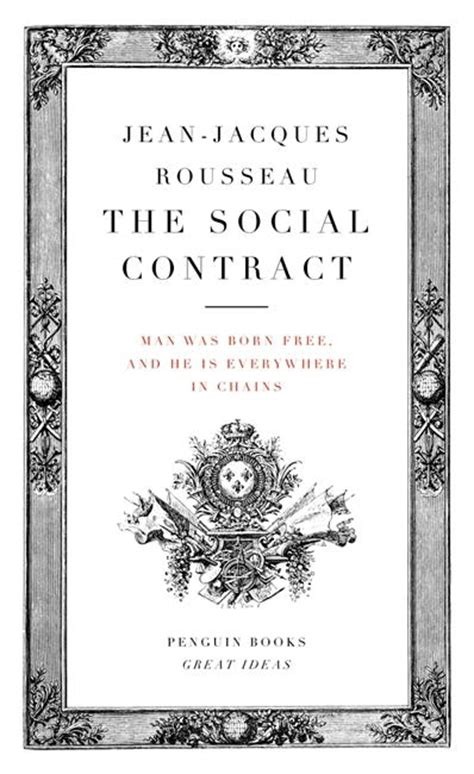
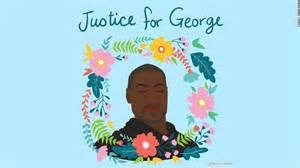
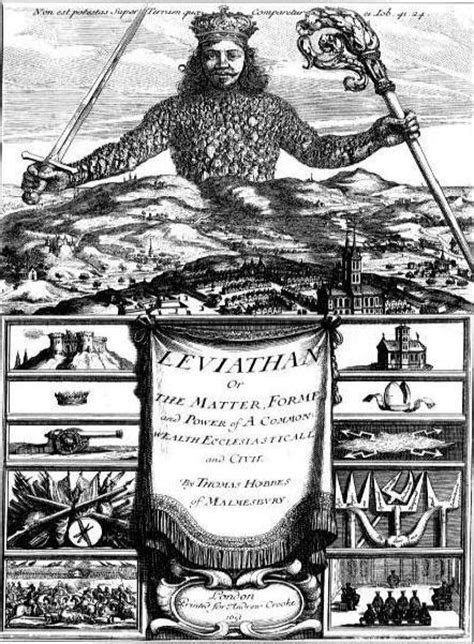




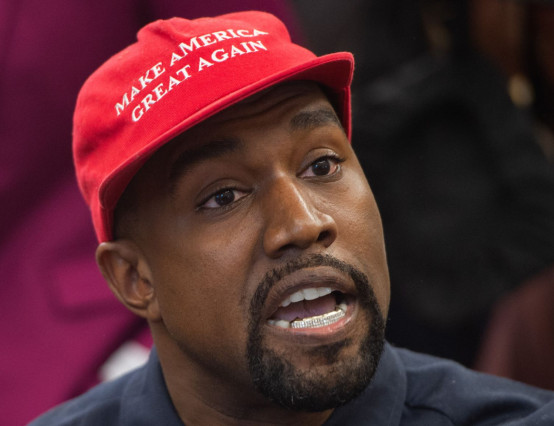
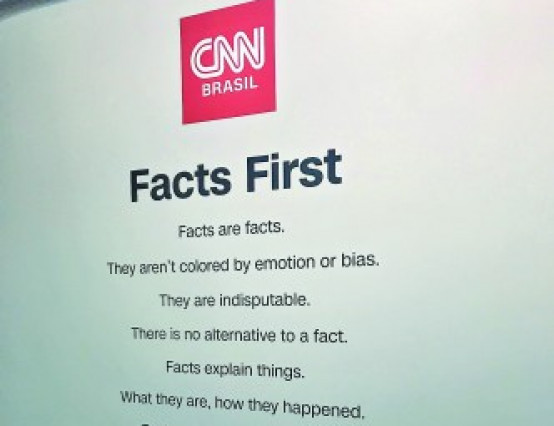
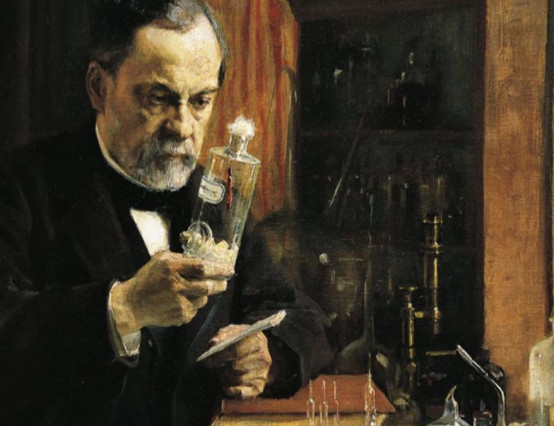
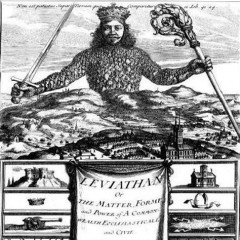


0 Comments